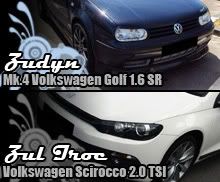
Cyclone Fuel Saver

Tornado Fuel Saver

The infamous Magnetic Fuel Saver
So I bet some of you might have already install this in your car. So tell me, have you ever tested it out? Does it really work? Have you ever test dyno-ed for any performance increases as the market/papers claimed, or.. do you have any idea how thermodynamics work?
Now don't hate me for this or anything, but I'm just trying to prove out something here. Infact, if you could do a 20-seconds google search about the truths for these gadgets, you'll realise the portion of the search results (which comes from enthusiasts forums, auto e-magazines) say that they simply don't work. Of course, the manufacturer for these products says otherwise!
I'm a consumer aswell (just like the rest of the people living here), but I do want to know if a certain product really works, or is it just a gimmick and such marketing techniques just to fit in the situation of saying, "Since Brunei asked us to be economically saving with the energy and the fuel we used in vehicles".
Now with this very article, I would like to share with all readers and road-users out there to prove and the truths about these gadgets.
Ready? Proceed!
---
Magnetic Fuel Savers
So let's start with this one. Of course there are dozens of fuel-line magnets on the market. They all make similar claims: substantial improvements in fuel economy,
Chemistry check: Fuel is made up of hydrocarbons that are electrically neutral, so how will flowing through a magnetic field affect them? So to say:
- Magnets are incapable of ionising any liquid, it's fact!
- Fossil fuels are covalently-bonded compounds. Not ionic ones hence not capable of being ionised. Got that?
- Petrol, and diesel, are both covalently-bonded carbon compunds, and as such are completely unaffected by magnetic fields. Try this: Take a litre of your fuel, place it under a scrap-yard car-lifting magnet, from now until the next Hari Raya season, and you'll see that it won't affect the fuel! Not one tiny bit, and not at all! Is that clear?
- Rubber fuel lines. That's what vehicles have. So most applications shows that the magnets are attached to the rubber fuel lines and clamp by clips and etc. Try this: Get a magnet, place it under paper, and put iron filings on top . Pull the magnet around, and see the iron filings move, you've done that before right? Now try that with a rubber sheet. It doesn't work. Why? Because the paper was magnetically transparent, but the thin rubber sheet has inhibited the magnetic field. And the rubber? That's a carbon-based, long-chain, covalently-bonded molecule, in the same family as the fuel that you are trying to affect somehow with the magnet.
The rubber sheet was unaffected. But it did block the magnetic field, perfectly. Many, many substances are completely unaffected by magnets. Like water, wool, leather, wood, rubber, petrol, diesel, aluminum and hell, pretty much everything but iron.
---
Simply to say do they work at all? The answer is no! Okay okay right, even if it did work (which it doesn't anyway).. with the strongest magnet 'evaaarr' you can find on this planet earth, and clamp on your engine. Just consider the journey of a fuel molecule from the tank, through the fuel-filter, through the pump and being shot at high pressure - around 80 -120 PSI, down this narrow hose, at great speed. It would pass the magnet in about a ten-thousandth of a second! Not very long for our 'magic' to work, is it? Oh, sorry, there is no 'magic' at work here anyway!
Whatever changes you thought it did, or you felt.. it's just probably your imagination and mindset. Theory proved it.. BIG TIME!
Heck, if they already did worked.. car manufacturers would have put tonnes of those in our cars today. I would love to see some car manufacturers would even doing so just to prove that they actually work. And I'm saying major car manufacturers like BMW, Mercedes-Benz, Audi, Volkswagen, Porsche, Ferrari, Lamborghini, (and the list goes on).
And nope, I won't be so surprised if Geely came up with this piece of gadget under their car hood. :p
Stay tuned for Part. 2!












Nice Post! I am looking for
ReplyDeleteFuel saver devices can you please provide some relevant info regarding it.